 After UBS acquired Credit Suisse and close to a dozen financial institutions injected $30 billion into First Republic Bank four days ago, S&P Global downgraded First Republic’s shares to junk status on Sunday. Investors are concerned that the cash infusion from 11 major financial institutions may not address the bank’s liquidity issues. First Republic’s shares […]
After UBS acquired Credit Suisse and close to a dozen financial institutions injected $30 billion into First Republic Bank four days ago, S&P Global downgraded First Republic’s shares to junk status on Sunday. Investors are concerned that the cash infusion from 11 major financial institutions may not address the bank’s liquidity issues. First Republic’s shares […]
Bitcoin has decoupled from stocks and rising ten years after the Cyprus banking crisis coincided with a BTC price boom.
The market capitalization of Bitcoin (BTC) has added $194 billion in 2023. Its 66% year-to-date (YTD) growth is vastly outperforming top Wall Street bank stocks, particularly as fears of a global banking crisis are rising.

Moreover, Bitcoin has decoupled from U.S. stocks for the first time in a year, with its price rising about 65% versus S&P 500's 2.5% gains and Nasdaq's 15% decline in 2023.

The six largest U.S. banks — JPMorgan Chase (JPM), Bank of America (BAC), Citigroup (C), Wells Fargo (WFC), Morgan Stanley (MS), and Goldman Sachs (GS) — have lost nearly $100 billion in market valuation since the year's start, according to data gathered by CompaniesMarketCap.com.
Bank of America's stock is the worst performer among the Wall Street banking players, with a nearly 17% YTD drop in valuation. Goldman Sachs trails with an almost 12% YTD decrease, followed by Wells Fargo (-9.75%), JP Morgan Chase (1%).

The U.S. banks' valuation has slid amid the ongoing U.S. regional banking collapse. That includes the announcement last week that Silvergate, a crypto-focused bank, was closing its doors and the subsequent takeover of Signature Bank and Silicon Valley Bank by regulators.
Related: Breaking: SVB Financial Group files for Chapter 11 bankruptcy
The crisis further expanded with the near-collapse of First Republic Bank, which was saved at the last moment through a $30 billion combined injection by Wells Fargo, JP Morgan Chase, Bank of America, Citigroup, and others.
The rise of Bitcoin in the face of a growing U.S. banking crisis is similar to how it reacted during banking collapses in Cyprus and Greece.
BTC's price grew by up to 5,000% amid the Cyprus financial crisis in 2013, prompted by the exposure of Cypriot banks to overleveraged regional real-estate companies.

The situation was so dire that Cyprus authorities, in March 2013, closed all banks to avoid a bank run.
When Greece faced a similar crisis in 2015 and imposed capital controls on citizens to avoid a bank run, Bitcoin's price gained 150% during the period.

“Fears over the stability of the banking system, along with declining real interest rates, creates a good environment for Bitcoin to rebound," noted Ilan Solot, co-head of digital assets at London broker Marex, adding that the crypto "is seen by some investors as a hedge against systemic risks."
This article does not contain investment advice or recommendations. Every investment and trading move involves risk, and readers should conduct their own research when making a decision.
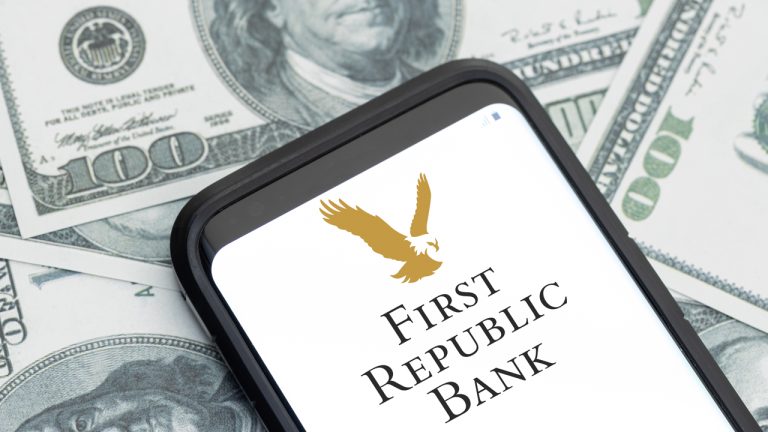 After the fall of Silvergate Bank, Silicon Valley Bank (SVB), and Signature Bank (SNBY), First Republic Bank, a commercial bank and wealth management services provider, is the latest financial institution to receive a bailout. Close to a dozen lenders announced they will deposit $30 billion into the beleaguered bank’s coffers to shore up liquidity. U.S. […]
After the fall of Silvergate Bank, Silicon Valley Bank (SVB), and Signature Bank (SNBY), First Republic Bank, a commercial bank and wealth management services provider, is the latest financial institution to receive a bailout. Close to a dozen lenders announced they will deposit $30 billion into the beleaguered bank’s coffers to shore up liquidity. U.S. […]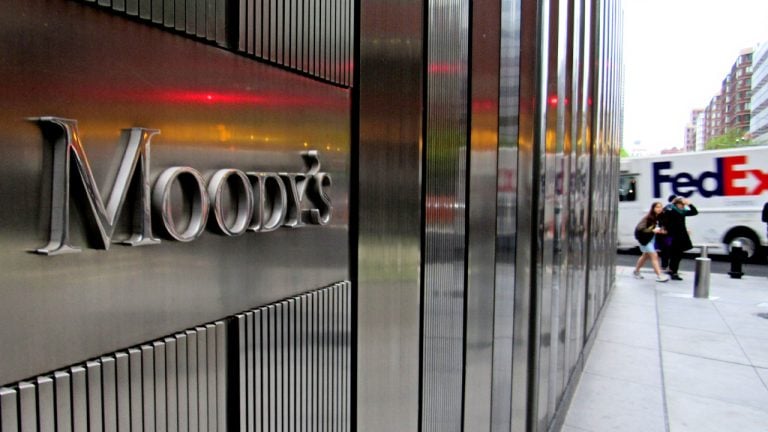 After the failure of three major U.S. banks last week, with two of them being the second and third largest banking failures in the country, Moody’s Investors Service has downgraded the rating of the U.S. banking system from “stable” to “negative.” As one of the “Big Three” credit rating firms, Moody’s cited a “rapid deterioration […]
After the failure of three major U.S. banks last week, with two of them being the second and third largest banking failures in the country, Moody’s Investors Service has downgraded the rating of the U.S. banking system from “stable” to “negative.” As one of the “Big Three” credit rating firms, Moody’s cited a “rapid deterioration […]
Goldman Sachs digital asset lead Mathew McDermott said the bank remains “hugely positive” on exploring blockchain applications.
Goldman Sachs’ digital assets unit is reportedly open to bolstering its 70-strong team, despite a massive cost-cutting exercise at the firm last month that will see 3,200 employees clear their desks.
Mathew McDermott, global head of digital assets for Goldman Sachs, said the bank remains “hugely supportive” of exploring blockchain applications and that the digital asset division will hire “as appropriate” this year.
The executive made the comments in Hong Kong to Bloomberg last week, noting that the digital assets team has grown from just four staff members in 2020 to around 70 today.
The firm’s supposed openness to beef up its crypto team comes despite the firm cutting up to 3,200 jobs last month, its largest round of layoffs since the global financial crisis of 2008-2009.
The cuts have reportedly impacted senior, middle and junior-level executives and concentrated on its core trading and banking units, according to a person with knowledge of the matter.
In a presentation during Goldman Sachs' 2023 Investor Day in New York, CFO Denis Coleman reportedly said part of the payroll cuts will also involve holding off on replacing departing employees this year, so it can instead focus on “prioritizing strategic hires.”
#GoldmanSachs now smaller than #MorganStanley by almost $40B
— Susan Li (@SusanLiTV) February 28, 2023
CEO David Solomon being blamed for underperformance & wrong strategy
Holding 2nd ever Investor day
Targeting returns in mid-teens
May spin off or sell #consumer biz
Remember $GS IPO'd at 4XBook now worth 4 times LESS pic.twitter.com/v9pQ70aOFw
Related: Crypto layoffs decelerate, with layoffs falling to 570 in February
In December, McDermott said the firm was seeing opportunities to buy crypto companies that are “priced more sensibly” after the collapse of crypto exchange FTX, adding that they are already doing its due diligence on some crypto firms.
He noted that while FTX was a “poster child” of the space, ultimately, the underlying tech behind the industry “continues to perform.”
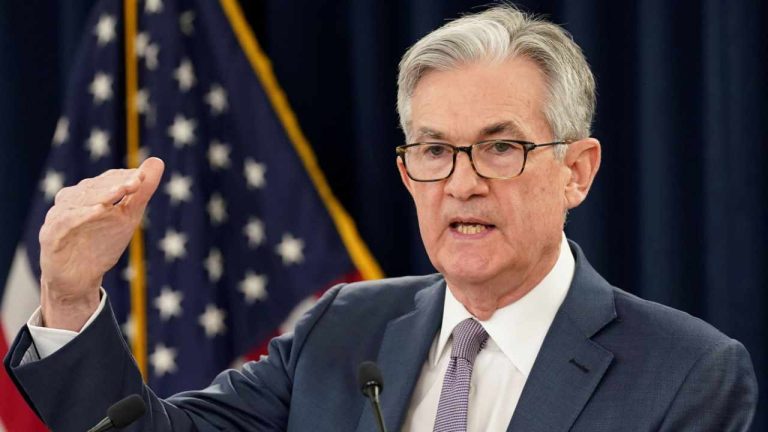 Bank of America, Goldman Sachs, JPMorgan, and UBS have shared their predictions about the Federal Reserve raising interest rates further. Bank of America and Goldman Sachs, for example, now expect the Fed to raise interest rates three more times this year. Major Banks Predict More Fed Rate Hikes As the U.S. Federal Reserve continues its […]
Bank of America, Goldman Sachs, JPMorgan, and UBS have shared their predictions about the Federal Reserve raising interest rates further. Bank of America and Goldman Sachs, for example, now expect the Fed to raise interest rates three more times this year. Major Banks Predict More Fed Rate Hikes As the U.S. Federal Reserve continues its […]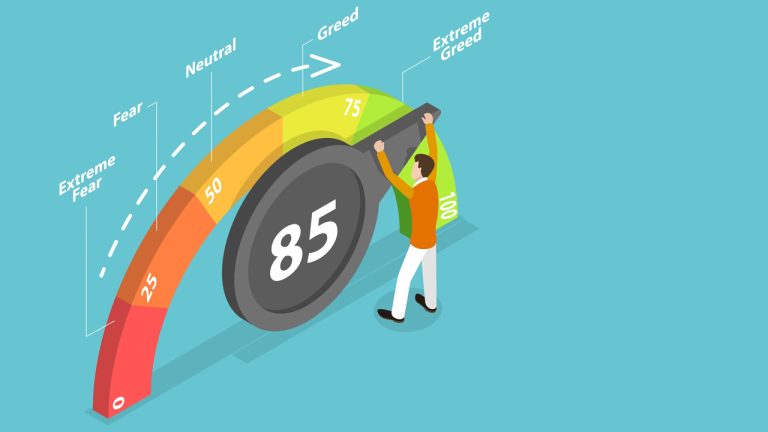 Last month, statistics showed that the Crypto Fear and Greed Index (CFGI) had a score of 25, indicating “extreme fear.” Thirty days later, with a 39% increase in bitcoin prices against the U.S. dollar, the current CFGI score on Jan. 30, 2023, is 61, reflecting “greed.” Crypto Fear Index Jumps to ‘Greed,’ Etoro Market Analyst […]
Last month, statistics showed that the Crypto Fear and Greed Index (CFGI) had a score of 25, indicating “extreme fear.” Thirty days later, with a 39% increase in bitcoin prices against the U.S. dollar, the current CFGI score on Jan. 30, 2023, is 61, reflecting “greed.” Crypto Fear Index Jumps to ‘Greed,’ Etoro Market Analyst […]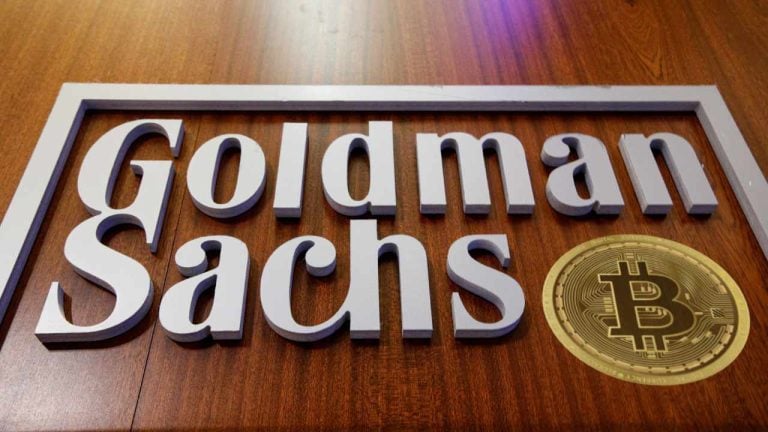 Goldman Sachs has ranked bitcoin the best-performing asset so far this year. The cryptocurrency also tops the global investment bank’s list as the asset with the highest risk-adjusted return — above gold, real estate, the S&P 500, and the Nasdaq 100. Bitcoin Outshines Other Investments on Goldman’s Chart Global investment bank Goldman Sachs has reportedly […]
Goldman Sachs has ranked bitcoin the best-performing asset so far this year. The cryptocurrency also tops the global investment bank’s list as the asset with the highest risk-adjusted return — above gold, real estate, the S&P 500, and the Nasdaq 100. Bitcoin Outshines Other Investments on Goldman’s Chart Global investment bank Goldman Sachs has reportedly […] Amid the dreary global economy, a number of market strategists and analysts believe oil will be the number one investment in 2023. While a barrel of oil is coasting along at prices between $80.12 and $85 per unit, Goldman Sachs analysts think oil will reach $110 per barrel for Brent oil, and strategists from Morgan […]
Amid the dreary global economy, a number of market strategists and analysts believe oil will be the number one investment in 2023. While a barrel of oil is coasting along at prices between $80.12 and $85 per unit, Goldman Sachs analysts think oil will reach $110 per barrel for Brent oil, and strategists from Morgan […]
Blockchains aren’t meant to provide big banks with another venue for imposing new fees on users.
Only one of the following news items is real, but someday, all will sound equally comical.
Headline, 1896:
The owner of Wagoneer & Sons, a leading horse-drawn carriage maker, has announced the adoption of a new machine called the “internal combustion engine” to improve its manufacturing process. “Gas engines are powerful but dangerous,” the owner said. “We will use them to make better wagons.
Headline, 1918:
The American Association of Candle Makers has announced a new initiative to electrify its wax-making process. It believes that electricity is too dangerous to use for lighting but can be utilized to make cheaper candles.
Headline, 1989:
The United States postal service will adopt a new technology called “the internet” to speed up the sorting and delivery of letters and postcards.
Headline, 2022:
The CEO of a major investment bank argues that blockchain, a technology invented to eliminate legacy intermediaries such as banks, is best used by those intermediaries to incrementally improve their outdated methods.
That final headline is a summary of an op-ed authored by Goldman Sachs CEO David Solomon, who argues that private blockchains deployed by regulated intermediaries are more useful than cryptocurrencies. This is the latest iteration of the “blockchain, not Bitcoin” argument we’ve heard for years. It usually starts with a list of why things like public blockchains or decentralized finance (DeFi) are dangerous and ends with the conclusion that only incumbents should be allowed to use the technology. But that’s not how history works.
Every transformative technology starts out as “inefficient and dangerous.” The earliest automobiles often broke down, and one of the first major uses of electricity was executing prisoners. The people and companies who initially embrace new tech also tend to be suspect. Most car companies that popped up 100 years ago failed, and Thomas Edison used to electrocute animals to make his competitors look bad. But good tech that solves important problems wins anyway.
To be fair, there was a time when I considered private blockchains to be a useful, though insignificant, solution — not as a substitute to crypto but as a temporary solution that could evolve in parallel. A bank, I would have told you three years ago, could use a private network to reduce internal inefficiencies today while learning how to interact with public ones tomorrow.
But I was wrong. Despite a massive effort, the only thing private chains have achieved so far is impressive headlines followed by even more impressive failures. I can’t find a single instance of a corporate project doing something useful despite hundreds of millions of dollars invested in many. The list of epic failures grows by the week.
Related: Learn from FTX and stop investing in speculation
The first problem with any private network is the bastardization of the point of crypto, which is to eliminate intermediaries like banks and the fees they collect. Take cross-border payments, where multiple correspondent banks have been (supposedly) building private blockchains to improve their internal transfers. The best correspondent bank isn’t a more efficient one — it’s the one you don’t need thanks to stablecoins.
That’s not to say that banking will go away. Even stablecoins will need someone to hold their reserves, and tokens often need custodians. But the more time big banks waste on their private-chain fantasies, the less likely they are to build useful crypto products.
In his op-ed, Solomon argues that “under the guidance of a regulated financial institution like ours, blockchain innovations can flourish,” followed by “the invention of email didn’t make FedEx or UPS obsolete.” This is a false analogy. A better one is the U.S. Postal Service, where mail volume collapsed by 50%. Is Wall Street listening?
The second problem with any private network is the slow pace of development. In DeFi, new protocols are frequently launched by random developers. Most fail (sometimes catastrophically), but thanks to the permissionless nature of public networks, the iteration is instant. That’s how we get generational breakthroughs like Uniswap, built on a $100,000 grant — less money than the salary of the countless bank executives working on the latest private network fantasy.
Related: From the NY Times to WaPo, the media is fawning over Bankman-Fried
“But wait a minute,” bankers like to argue, “what about regulations? We can’t just dive head first into DeFi even if we wanted to.” That’s true. But it’s also their problem.
What these executives are really saying is that they expect their regulatory moats to protect them indefinitely. If every DeFi project had to first get a banking license, then the pace of innovation in crypto would slow drastically.
But that’s not how disruption works. By using smart contracts and cryptographically guaranteed outcomes, DeFi will be a lot safer than any bank. By riding a transparent, global public network like Ethereum, it will also be more accessible and fair than any financial system that we have today. Regulators will eventually come around.
It’s hard to know exactly what a public permissionless future would look like, but the one thing we can be sure of is that it won’t look like how Wall Street operates today. That’s not how history works.
This article is for general information purposes and is not intended to be and should not be taken as legal or investment advice. The views, thoughts and opinions expressed here are the author’s alone and do not necessarily reflect or represent the views and opinions of Cointelegraph.